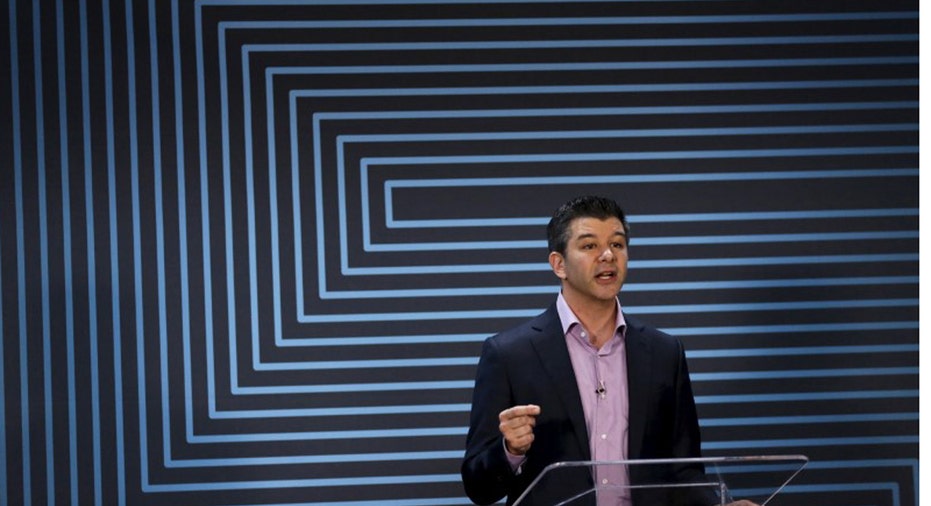Uber CEO Travis Kalanick's Leadership Problem

Uber CEO Travis Kalanick has taken a lot of heat for his combative leadership style. And lately, he’s been under fire for creating a culture of brazen meritocracy at the hyper-growth company he co-founded in 2009. But you could always count on the uber-competitive entrepreneur to own it. Until now.
An incendiary blog post by former engineer Susan Fowler unleashed a firestorm from early investors, former employees and the media alleging that Uber management fosters sexism, bias and bad behavior. The crisis escalated when an embarrassing video surfaced of Kalanick berating a driver.
In an email to employees on Tuesday, Kalanick’s familiar defiance was gone. It’s time to “fundamentally change as a leader and grow up,†he wrote. The question is, can he and will he? The answer is, that depends.
The good news, I suppose, is that Kalanick is in good company. Some of the most successful CEOs of our time – Steve Jobs, Bill Gates and Andy Grove, to name a few – were not known for their empathy, to put it mildly. Behavioral change, however, takes more than acknowledgement that there’s a problem. It takes work. And it takes guidance.
To me, his and Uber’s issues do not appear to be existential or even out of the ordinary as alpha male executives running high-growth companies go. Uber’s corporate culture was actually modeled after that of another tech company that came under similar attack a few years back: Amazon (NASDAQ:AMZN).
Uber, though, finds itself in a very different competitive position than the retail giant. At $68 billion, it may be the most valuable startup in the world, but it still is a startup with intense competition from Lyft and now Google’s Waze unit. There’s also an active and growing #DeleteUber campaign.
It bears mentioning that Silicon Valley is full of low EQ entrepreneurs that are so focused on achieving their vision that they deprioritize everything else. Their company cultures tend to be obsessed with winning and growth. And, for what it’s worth, their intention is never for employees to get trampled under the wheels of disruptive innovation.
Founders who find themselves in the kind of sticky situation that Kalanick is in, often turn to seasoned former executives as mentors to help them round out their rough edges. Probably the most successful executive coach in the Valley, at least in terms of helping young entrepreneurs become mature CEOs, was Bill Campbell.
A former head coach of Columbia University’s football team, Campbell worked at Kodak (NYSE:KODK) before Apple (NASDAQ:AAPL) CEO John Sculley tapped him to run marketing soon after the Cupertino company’s IPO. Campbell went on to run several tech companies, including Intuit (NASDAQ:INTU), before deciding to focus on coaching as a way of giving back to the industry.
His first client, interestingly enough, was Amazon. In the late 90s, the board considered replacing founder Jeff Bezos with a more experienced executive, but one director, famed venture capitalist John Doerr, brought Campbell in to spend some time mentoring Bezos. You probably know the rest.
When Jobs returned to Apple in the NeXT acquisition, he talked Campbell into joining the board. From that point on, he was probably Jobs’ closest friend and confidante, helping to guide the company back from the brink of bankruptcy to become the most valuable corporation on Earth.
Doerr also brought Campbell to Google (NASDAQ:GOOGL), where the two convinced founders Larry Page and Sergey Brin to work together with Eric Schmidt as CEO. At first, their styles clashed, but with some coaching by Campbell, they became the most successful management triumvirate in the history of Silicon Valley.
Unfortunately, not every executive is coachable. Google had a talented up-and-comer named Marissa Mayer, but Campbell apparently found her to be lacking in empathy and resistant to coaching. That’s reportedly why Mayer never made it to senior vice president at the search giant, which ultimately led to her taking the CEO job at Yahoo (NASDAQ:YHOO).
Sadly, the man who helped so many young entrepreneurs bridge the gap from brazen founder to mature CEO passed away in 2016, but he left behind a process. For leaders to change their behavior, they need to believe it’s necessary, they need a talented coach to guide them and they need to work hard. That’s now up to Kalanick and Uber’s board.



















